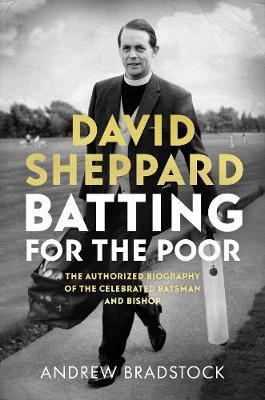Batting for the Poor: The Authorized Biography of David Shep

Batting for the Poor: The Authorized Biography of David Shep
Converted to evangelical Christianity at a university mission in his first year at Cambridge, Sheppard was ordained into the Church of England in 1955. His curacy in Islington gave him a passion to serve the church in the inner-city, a calling which he fulfilled as warden of the Mayflower Centre in Canning Town, east London, for the following twelve years. His work at the Mayflower is still regarded as ground-breaking in terms of reaching inner-city communities with the Christian message. Among the many initiatives it spawned were the Frontier Youth Trust and the Evangelical Urban Training Project (now Unlock). Following his appointment as Bishop of Woolwich in 1969, Sheppard further developed his commitment to inner-city ministry, focusing in particular on improving race relations within the diocese, particularly south London. In 1974 he published a major text about his work in urban areas, Built as a City (Hodder & Stoughton).
It was as Bishop of Liverpool from 1975-97 that Sheppard made his biggest mark. In a city where the historical divisions between Catholics and Protestants had led to it being described as a `mini-Belfast', Sheppard forged a pioneering ecumenical partnership with Archbishop Derek Worlock, his Roman Catholic counterpart. Both worked tirelessly to revive the fortunes of the city, then beset by high unemployment and economic decline, and to bring reconciliation and hope to its people. During a 20-year partnership Sheppard and Worlock, with the free church leaders, helped break down not only religious divisions in the city but those between the unions and industry, the police a
PRP: 169.86 Lei
Acesta este Pretul Recomandat de Producator. Pretul de vanzare al produsului este afisat mai jos.
152.87Lei
152.87Lei
169.86 LeiIndisponibil
Descrierea produsului
Converted to evangelical Christianity at a university mission in his first year at Cambridge, Sheppard was ordained into the Church of England in 1955. His curacy in Islington gave him a passion to serve the church in the inner-city, a calling which he fulfilled as warden of the Mayflower Centre in Canning Town, east London, for the following twelve years. His work at the Mayflower is still regarded as ground-breaking in terms of reaching inner-city communities with the Christian message. Among the many initiatives it spawned were the Frontier Youth Trust and the Evangelical Urban Training Project (now Unlock). Following his appointment as Bishop of Woolwich in 1969, Sheppard further developed his commitment to inner-city ministry, focusing in particular on improving race relations within the diocese, particularly south London. In 1974 he published a major text about his work in urban areas, Built as a City (Hodder & Stoughton).
It was as Bishop of Liverpool from 1975-97 that Sheppard made his biggest mark. In a city where the historical divisions between Catholics and Protestants had led to it being described as a `mini-Belfast', Sheppard forged a pioneering ecumenical partnership with Archbishop Derek Worlock, his Roman Catholic counterpart. Both worked tirelessly to revive the fortunes of the city, then beset by high unemployment and economic decline, and to bring reconciliation and hope to its people. During a 20-year partnership Sheppard and Worlock, with the free church leaders, helped break down not only religious divisions in the city but those between the unions and industry, the police a
Detaliile produsului









